World History (1910-1949)
1910
Boy Scouts of America incorporated. Angel Island, in San Francisco Bay,
becomes immigration center for Asians entering U.S.
1911
First use of aircraft as offensive weapon in Turkish-Italian War. Italy
defeats Turks and annexes Tripoli and Libya. Chinese Republic proclaimed
after revolution overthrows Manchu dynasty. Sun Yat-sen named president.
Mexican Revolution: Porfirio Diaz, president since 1877, replaced by
Francisco Madero. Triangle Shirtwaist Company fire in New York; 146
killed. Amundsen reaches South Pole. Ernest Rutherford discovers the
structure of the atom. Richard Strauss's Der Rosenkavalier. Irving
Berlin's Alexander's Ragtime Band.
1912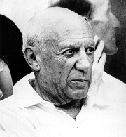
Balkan Wars (1912-1913) resulting from territorial disputes: Turkey
defeated by alliance of Bulgaria, Serbia, Greece, and Montenegro; London
peace treaty (1913) partitions most of European Turkey among the victors.
In second war (1913), Bulgaria attacks Serbia and Greece and is defeated
after Romania intervenes and Turks recapture Adrianople. Titanic sinks on
maiden voyage; over 1,500 drown. New Mexico and Arizona admitted as
states.
1913
Suffragettes demonstrate in London. Garment workers strike in New York and
Boston; win pay raise and shorter hours. Henry Ford develops first moving
assembly line. 16th Amendment (income tax) and 17th (popular election of
U.S. senators) adopted. Bill creating U.S. Federal Reserve System becomes
law. Stravinsky's The Rite of Spring. Woodrow Wilson becomes 28th U.S.
president. Armory Show introduces modern art to U.S.; Duchamp's Nude
Descending a Staircase shocks public.
1914
World War I begins: Austrian Archduke Francis Ferdinand and wife Sophie
are assassinated; Austria declares war on Serbia, Germany on Russia and
France, Britain on Germany. (For detailed chronology see, World War
I.)Panama Canal officially opened. Congress sets up Federal Trade
Commission, passes Clayton Antitrust Act. U.S. Marines occupy Veracruz,
Mexico, intervening in civil war to protect American interests.
1915
Lusitania sunk by German submarine. Second Battle of Ypres. U.S. banks
lend $500 million to France and Britain. Genocide of estimated 600,000 to
1 million Armenians by Turkish soldiers. D. W. Griffith's film Birth of a
Nation. Albert Einstein's General Theory of Relativity.
1916
Congress expands armed forces. Battle of Verdun. Battle of the Somme. Tom
Mooney arrested for San Francisco bombing (pardoned in 1939). Pershing
fails in raid into Mexico in quest of rebel Pancho Villa. U.S. buys Virgin
Islands from Denmark for $25 million.
1920
League of Nations holds first meeting at Geneva, Switzerland. U.S. Dept.
of Justice red hunt nets thousands of radicals; aliens deported. Women's
suffrage (19th) amendment ratified. Treaty of S�vres dissolves Ottoman
Empire. First Agatha Christie mystery. Sinclair Lewis's Main Street.
1921
Reparations Commission fixes German liability at 132 billion gold marks.
German inflation begins. Major treaties signed at Washington Disarmament
Conference limit naval tonnage and pledge to respect territorial integrity
of China. In U.S., Nicola Sacco and Bartolomeo Vanzetti, Italian-born
anarchists, convicted of armed robbery murder; case stirs world-wide
protests; they are executed in 1927.
1922
Mussolini marches on Rome; forms Fascist government. Irish Free State, a
self-governing dominion of British Empire, officially proclaimed. Kemal
Atat�rk, founder of modern Turkey, overthrows last sultan. James Joyce's
Ulysses.
1923
Adolf Hitler's Beer Hall Putsch in Munich fails; in 1924 he is sentenced
to five years in prison where he writes Mein Kampf; released after eight
months. Occupation of Ruhr by French and Belgian troops to enforce
reparations payments. Widespread Ku Klux Klan violence in U.S. Earthquake
destroys third of Tokyo. George Gershwin's Rhapsody in Blue. Bessie Smith,
known as the Empress of the Blues, makes her first record. Irish poet
William Butler Yeats wins Nobel Prize in Literature.
1924
Death of Lenin; Stalin wins power struggle, rules as Soviet dictator until
death in 1953. Italian Fascists murder Socialist leader Giacomo Matteotti.
Interior Secretary Albert B. Fall and oilmen Harry Sinclair and Edward L.
Doheny are charged with conspiracy and bribery in the Teapot Dome scandal,
involving fraudulent leases of naval oil reserves. In 1931, Fall is
sentenced to year in prison; Doheny and Sinclair acquitted of bribery.
Nathan Leopold and Richard Loeb convicted in thrill killing of Bobby
Franks in Chicago; defended by Clarence Darrow; sentenced to life
imprisonment. (Loeb killed by fellow convict in 1936; Leopold paroled in
1958, dies in 1971.) Robert Frost wins first of four Pulitzers.
1925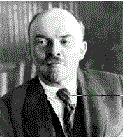
Nellie Tayloe Ross elected governor of Wyoming; first woman governor
elected in U.S. Locarno conferences seek to secure European peace by
mutual guarantees. John T. Scopes convicted and fined for teaching
evolution in a public school in Tennessee Monkey Trial; sentence set
aside. John Logie Baird, Scottish inventor, transmits human features by
television. Hitler publishes Volume I of Mein Kampf.
1926
General strike in Britain brings nation's activities to standstill. U.S.
marines dispatched to Nicaragua during revolt; they remain until 1933.
Gertrude Ederle of U.S. is first woman to swim English Channel. Ernest
Hemingway's The Sun Also Rises.
1927
German economy collapses. Socialists riot in Vienna; general strike
follows acquittal of Nazis for political murder. Trotsky expelled from
Russian Communist Party. Charles A. Lindbergh flies first successful solo
non-stop flight from New York to Paris. Ruth Snyder and Judd Gray
convicted of murder of Albert Snyder; they are executed at Sing Sing
prison in 1928. Philo T. Farnsworth demonstrates working television model.
Georges Lema�tre proposes Big Bang Theory. Babe Ruth hits 60 home runs in
the season; record stands for next 34 years. The Jazz Singer, with Al
Jolson, first part-talking motion picture.
1928
Kellogg-Briand Pact, outlawing war, signed in Paris by 65 nations.
Alexander Fleming discovers penicillin. Richard E. Byrd starts expedition
to Antarctic; returns in 1930. Anthropologist Margaret Mead publishes
Coming of Age in Samoa. Oxford English Dictionary published after 44 years
of research.
1929
Trotsky expelled from U.S.S.R. Lateran Treaty establishes independent
Vatican City. In U.S., stock market prices collapse, with U.S. securities
losing $26 billion first phase of Depression and world economic crisis.
St. Valentine's Day gangland massacre in Chicago. Edwin Powell Hubble
proposes theory of expanding universe.
1930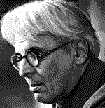
Britain, U.S., Japan, France, and Italy sign naval disarmament treaty.
Nazis gain in German elections. Cyclotron developed by Ernest O. Lawrence,
U.S. physicist. Pluto discovered by astronomers.
1931
Spain becomes a republic with overthrow of King Alfonso XIII. German
industrialists finance 800,000-strong Nazi party. British parliament
enacts statute of Westminster, legalizing dominion equality with Britain.
Mukden Incident begins Japanese occupation of Manchuria. In U.S., Hoover
proposes one-year moratorium of war debts. Harold C. Urey discovers heavy
hydrogen. Gangster Al Capone sentenced to 11 years in prison for tax
evasion (freed in 1939; dies in 1947). Notorious Scottsboro trial begins,
exposing depth of Southern racism. The Star Spangled Banner officially
becomes national anthem.
1932
Nazis lead in German elections with 230 Reichstag seats. Famine in U.S.S.R.
In U.S., Congress sets up Reconstruction Finance Corporation to stimulate
economy. Veterans march on Washington most leave after Senate rejects
payment of cash bonuses; others removed by troops under Douglas MacArthur.
U.S. protests Japanese aggression in Manchuria. Amelia Earhart is first
woman to fly Atlantic solo. Charles A. Lindbergh's baby son kidnapped,
killed. (Bruno Richard Hauptmann arrested in 1934, convicted in 1935,
executed in 1936.)
1933
Hitler appointed German chancellor, gets dictatorial powers. Reichstag
fire in Berlin; Nazi terror begins. Germany and Japan withdraw from League
of Nations. Giuseppe Zangara executed for attempted assassination of
president-elect Roosevelt in which Chicago mayor Cermak is fatally shot.
Roosevelt inaugurated ( the only thing we have to fear is fear itself );
launches New Deal. Prohibition repealed. U.S.S.R. recognized by U.S.
1934
Chancellor Dollfuss of Austria assassinated by Nazis. Hitler becomes
f�hrer. U.S.S.R. admitted to League of Nations. Dionne sisters, first
quintuplets to survive beyond infancy, born in Canada. Mao Zedong begins
the Long March north with 100,000 soldiers.
1935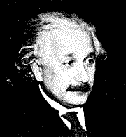
Saar incorporated into Germany after plebiscite. Nazis repudiate
Versailles Treaty, introduce compulsory military service. Mussolini
invades Ethiopia; League of Nations invokes sanctions. Roosevelt opens
second phase of New Deal in U.S., calling for social security, better
housing, equitable taxation, and farm assistance. Huey Long assassinated
in Louisiana.
1936
Germans occupy Rhineland. Italy annexes Ethiopia. Rome-Berlin Axis
proclaimed (Japan to join in 1940). Trotsky exiled to Mexico. King George
V dies; succeeded by son, Edward VIII, who soon abdicates to marry an
American-born divorc�e, and is succeeded by brother, George VI. Spanish
civil war begins. Hundreds of Americans join the Lincoln Brigades.
(Franco's fascist forces defeat Loyalist forces by 1939, when Madrid
falls.) War between China and Japan begins, to continue through World War
II. Japan and Germany sign anti-Comintern pact; joined by Italy in 1937.
1937
Hitler repudiates war guilt clause of Versailles Treaty; continues to
build German power. Italy withdraws from League of Nations. U.S. gunboat
Panay sunk by Japanese in Yangtze River. Japan invades China, conquers
most of coastal area. Amelia Earhart lost somewhere in Pacific on
round-the-world flight. Picasso's Guernica mural.
1938
Hitler marches into Austria; political and geographical union of Germany
and Austria proclaimed. Munich Pact Britain, France, and Italy agree to
let Germany partition Czechoslovakia. Douglas Wrong-Way Corrigan flies
from New York to Dublin. Fair Labor Standards Act establishes minimum
wage. Orson Welles's radio broadcast War of the Worlds.
1939
Germany invades Poland; occupies Bohemia and Moravia; renounces pact with
England and concludes 10-year non-aggression pact with U.S.S.R.
Russo-Finnish War begins; Finns to lose one-tenth of territory in 1940
peace treaty. World War II begins. For detailed chronology, see World War
II.) In U.S., Roosevelt submits $1,319-million defense budget, proclaims
U.S. neutrality, and declares limited emergency. Einstein writes FDR about
feasibility of atomic bomb. New York World's Fair opens. DAR refuses to
allow Marian Anderson to perform. Gone with the Wind premieres.
1940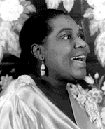
Hitler invades Norway, Denmark (April 9), the Netherlands, Belgium,
Luxembourg (May 10), and France (May 12). Churchill becomes Britain's
prime minister. Trotsky assassinated in Mexico (Aug. 20). Estonia, Latvia,
and Lithuania annexed by U.S.S.R. U.S. trades 50 destroyers for leases on
British bases in Western Hemisphere. Selective Service Act signed. The
first official network television broadcast is put out by NBC.
1941
Germany attacks the Balkans and Russia. Japanese surprise attack on U.S.
fleet at Pearl Harbor brings U.S. into World War II; U.S. and Britain
declare war on Japan. Manhattan Project (atomic bomb research) begins.
Roosevelt enunciates four freedoms, signs Lend-Lease Act, declares
national emergency, promises aid to U.S.S.R. Orson Welles's Citizen Kane.
1942
Declaration of United Nations signed in Washington (Jan. 1). Nazi leaders
attend Wannsee Conference to coordinate the final solution to the Jewish
question, the systematic genocide of Jews known as the Holocaust. (For
detailed chronology of the Holocaust, see The Holocaust.) Women's military
services established. Enrico Fermi achieves nuclear chain reaction. More
than 120,000 Japanese and persons of Japanese ancestry living in western
U.S. moved to relocation centers, some for the duration of the war
(Executive Order 9066). Coconut Grove nightclub fire in Boston kills 492
(Nov. 28).
1943
Churchill and Roosevelt hold Casablanca Conference (Jan. 14-23). Mussolini
deposed. President freezes prices, salaries, and wages to prevent
inflation. Income tax withholding introduced.
1944
Allies invade Normandy on D-Day (June 6). G.I. Bill of Rights enacted.
Bretton Woods Conference creates International Monetary Fund and World
Bank (July 12-2). Dumbarton Oaks Conference U.S., British Commonwealth,
and U.S.S.R. propose establishment of United Nations (Aug. 21-Oct. 7).
Battle of the Bulge (Dec. 16). Gunnar Myrdal's An American Dilemma.
1945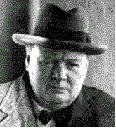
Yalta Conference (Roosevelt, Churchill, Stalin) plans final defeat of
Germany (Feb. 4-11). FDR dies (April 12). Hitler commits suicide (April
30); Germany surrenders (May 7); May 8 is declared V-E Day. Potsdam
Conference (Truman, Churchill, Stalin) establishes basis of German
reconstruction (July-Aug.). U.S. drops atomic bombs on Japanese cities of
Hiroshima (Aug. 6) and Nagasaki (Aug. 9). Japan signs official surrender
on V-J Day (Sept. 2). United Nations established (Oct. 24). First
electronic computer, ENIAC, built.
1946
First meeting of UN General Assembly opens in London (Jan. 10). Winston
Churchill's Iron Curtain speech warns of Soviet expansion (March 5).
League of Nations dissolved (April). Italy abolishes monarchy (June).
Verdict in Nuremberg war trial: 12 Nazi leaders (including 1 tried in
absentia) sentenced to hang; 7 imprisoned; 3 acquitted (Oct. 1). Goering
commits suicide a few hours before 10 other Nazis are executed (Oct. 15).
Juan Per�n becomes president of Argentina. Benjamin Spock's childcare
classic published.
1947
Britain nationalizes coal mines (Jan. 1). Peace treaties for Italy,
Romania, Bulgaria, Hungary, Finland signed in Paris (Feb. 10). Soviet
Union rejects U.S. plan for UN atomic-energy control (March 4). Truman
proposes Truman Doctrine, which was to aid Greece and Turkey in resisting
communist expansion (March 12). Marshall Plan for European recovery
proposed—a coordinated program to help European nations recover from
ravages of war (June). (By the time it ended in 1951, this European
Recovery Program had cost $13 billion.) India and Pakistan gain
independence from Britain (Aug. 15). U.S. Air Force pilot Chuck Yeager
becomes first person to break the sound barrier (Oct. 14). Jackie Robinson
joins the Brooklyn Dodgers. Anne Frank's The Diary of a Young Girl
published.
1948
Gandhi assassinated in New Delhi by Hindu fanatic (Jan. 30). Burma (Jan.
4) and Ceylon (Feb. 4) granted independence by Britain. Communists seize
power in Czechoslovakia (Feb. 23-25). Organization of American States
(OAS) Charter signed at Bogot�, Colombia (April 30). Nation of Israel
proclaimed; British end mandate at midnight; Arab armies attack (May 14).
Berlin blockade begins (June 24), prompting Allied airlift (June 26).
(Blockade ends May 12, 1949; airlift continues until Sept. 30, 1949.)
Stalin and Tito break (June 28). Independent Republic of Korea is
proclaimed, following election supervised by UN (Aug. 15). Verdict in
Japanese war trial: 18 imprisoned (Nov. 12); Tojo and six others hanged
(Dec. 23). United States of Indonesia established as Dutch and Indonesians
settle conflict (Dec. 27). Alger Hiss, former U.S. State Department
official, indicted on perjury charges after denying passing secret
documents to communist spy ring; convicted in second trial (1950) and
sentenced to five-year prison term. Truman ends racial segregation in
military. Alfred Kinsey publishes Sexual Behavior in the American Male.
Tennessee Williams's A Streetcar Named Desire wins Pulitzer.
1949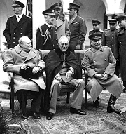
Cease-fire in Palestine (Jan. 7). Truman proposes Point Four Program to
help world's less developed areas (Jan. 20). Israel signs armistice with
Egypt (Feb. 24). Start of North Atlantic Treaty Organization (NATO) treaty
signed by 12 nations (April 4). Federal Republic of Germany (West Germany)
established (May 23). First successful Soviet atomic test (July 14).
Communist People's Republic of China formally proclaimed by Chairman Mao
Zedong (Oct. 1). German Democratic Republic (East Germany) established
under Soviet rule (Oct. 7). South Africa institutionalizes apartheid.
How To Submit Your Article:
Follow the Procedure Below To Submit Your Articles
Submit your Article by using our online form
Click here
Note* we only accept Original Articles, we will not accept
Articles Already Published in other websites.
For Further Details Contact:
[email protected]
Articles of Yesteryears
Click on the link Below to check articles submitted in previous years:Latest Articles - Law Articles 2017 - Law Articles 2016 - Law Articles 2015 - Law Articles 2014 - Law Articles 2013 - Law Articles 2012 - Law Articles 2011 - Law Articles 2010 - Law Articles 2009 - Law Articles 2008 - Articles 2007 - Law Articles 2006 - Law Articles 2000-05 - Archive
File Your Copyright - Right Now!
 Online Copyright Registration in India Call us at: 9891244487 / or email at: [email protected] |
Lawyers in India - Search By City |
|||
|
Delhi Chandigarh Allahabad Lucknow Noida Gurgaon Faridabad Jalandhar Vapi |
Mumbai Pune Nagpur Nashik Ahmedabad Surat Indore Agra Jalgaon |
Kolkata Siliguri Durgapur Janjgir Jaipur Ludhiana Dimapur Guwahati Amritsar |
Chennai Jamshedpur Hyderabad Coimbatore Eluru Belgaum Cochin Rajkot Jodhpur |


 Right Away Call us at Ph no: 9650499965
Right Away Call us at Ph no: 9650499965